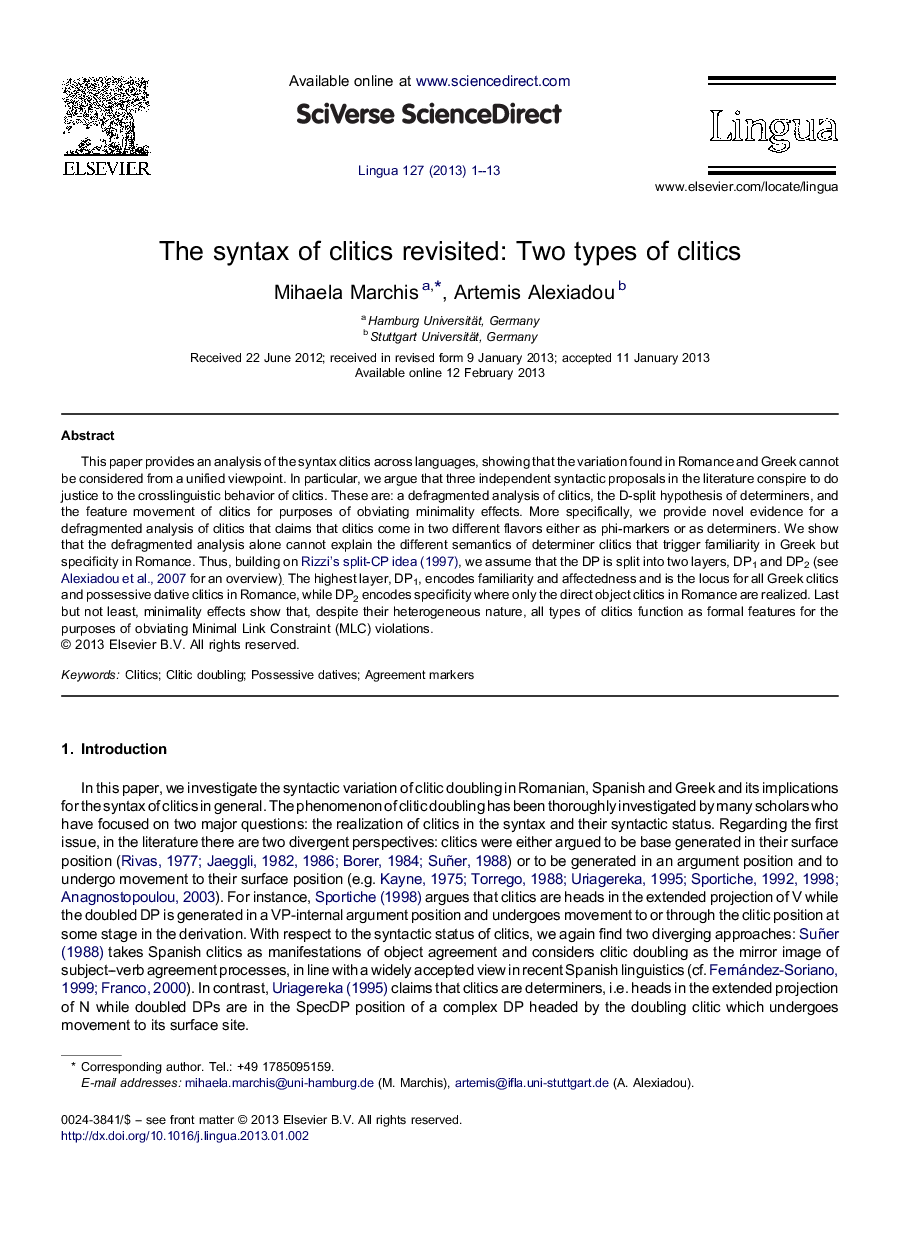| Article ID | Journal | Published Year | Pages | File Type |
|---|---|---|---|---|
| 935716 | Lingua | 2013 | 13 Pages |
This paper provides an analysis of the syntax clitics across languages, showing that the variation found in Romance and Greek cannot be considered from a unified viewpoint. In particular, we argue that three independent syntactic proposals in the literature conspire to do justice to the crosslinguistic behavior of clitics. These are: a defragmented analysis of clitics, the D-split hypothesis of determiners, and the feature movement of clitics for purposes of obviating minimality effects. More specifically, we provide novel evidence for a defragmented analysis of clitics that claims that clitics come in two different flavors either as phi-markers or as determiners. We show that the defragmented analysis alone cannot explain the different semantics of determiner clitics that trigger familiarity in Greek but specificity in Romance. Thus, building on Rizzi's split-CP idea (1997), we assume that the DP is split into two layers, DP1 and DP2 (see Alexiadou et al., 2007 for an overview). The highest layer, DP1, encodes familiarity and affectedness and is the locus for all Greek clitics and possessive dative clitics in Romance, while DP2 encodes specificity where only the direct object clitics in Romance are realized. Last but not least, minimality effects show that, despite their heterogeneous nature, all types of clitics function as formal features for the purposes of obviating Minimal Link Constraint (MLC) violations.
► We argue that three independent syntactic proposals in the literature conspire to do justice to the crosslinguistic behavior of clitics. ► These are: a defragmented analysis of clitics, the D-split hypothesis of determiners and the feature movement of clitics for purposes of obviating minimality effects. ► Specifically, we provide novel evidence for a defragmented analysis of clitics that claims that clitics come in two different flavors either as phi-markers or as determiners.
